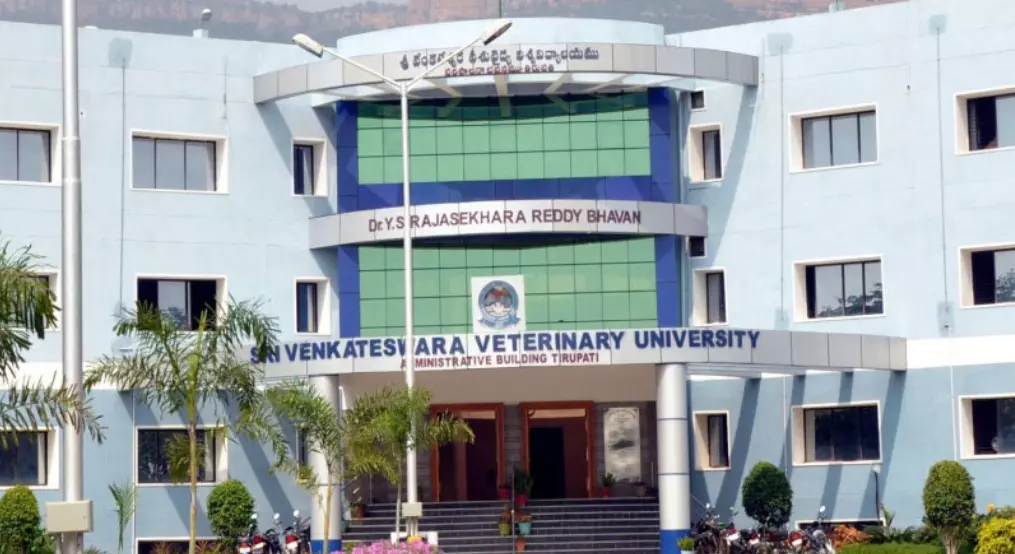Students intensify strike at SVVU, lock university gates
Students say instead of addressing their concerns, university authorities have resorted to coercive action by closing down their mess and forcing them out of the hostels

Tirupati: Tension gripped Sri Venkateswara Veterinary University (SVVU) in Tirupati on Wednesday after protesting students locked the main gate, preventing faculty members from entering the campus.
Wednesday is the 31st day of the strike, which escalated after university authorities decided to shut down the hostel mess — a move that students view as an attempt to break their resolve. The main demand of the students is a hike in their stipends, which have not been revised for a long time.
Students say instead of addressing their concerns, university authorities have resorted to coercive action by closing down their mess and forcing them out of the hostels.
“We have been protesting peacefully. But the authorities are trying to silence us by withdrawing essential services,” said a protester.
As students gathered at the locked main gate raising slogans against the vice chancellor Dr. J.V. Ramana, the situation turned tense. The campus witnessed heavy police presence by Wednesday evening.
Following police intervention, the VC met the student leaders and assured them that the hostel mess will be reopened immediately. He also promised to facilitate a meeting with animal husbandry Minister K. Atchannaidu, so that the students could present their demands directly to the minister and work towards a solution.
The protesting students unlocked the university gates thereafter. However, the students made it clear that their strike will continue until their core demand — a significant hike in stipends — is accepted.
Currently, undergraduate interns receive stipends of ₹7,000 per month, postgraduate students ₹9,000 per month and Ph. D. scholars ₹10,000 per month. These amounts have remained unchanged for 13 years.
The students are seeking a stipend of ₹25,000 for UG interns, ₹50,000 for PG students and ₹75,000 for Ph. D. scholars, arguing that these figures are in line with stipends given to medical students pursuing comparable courses.

